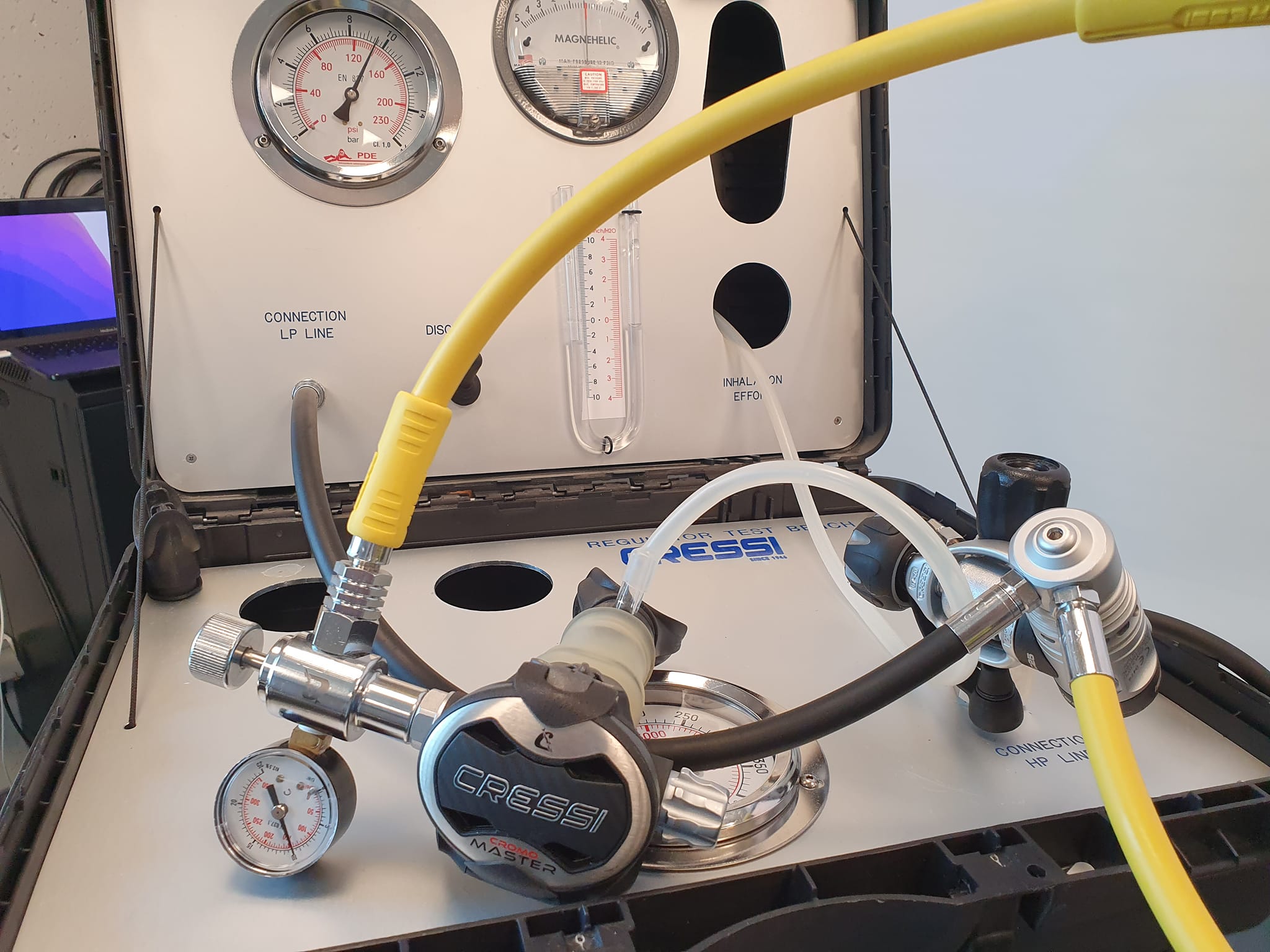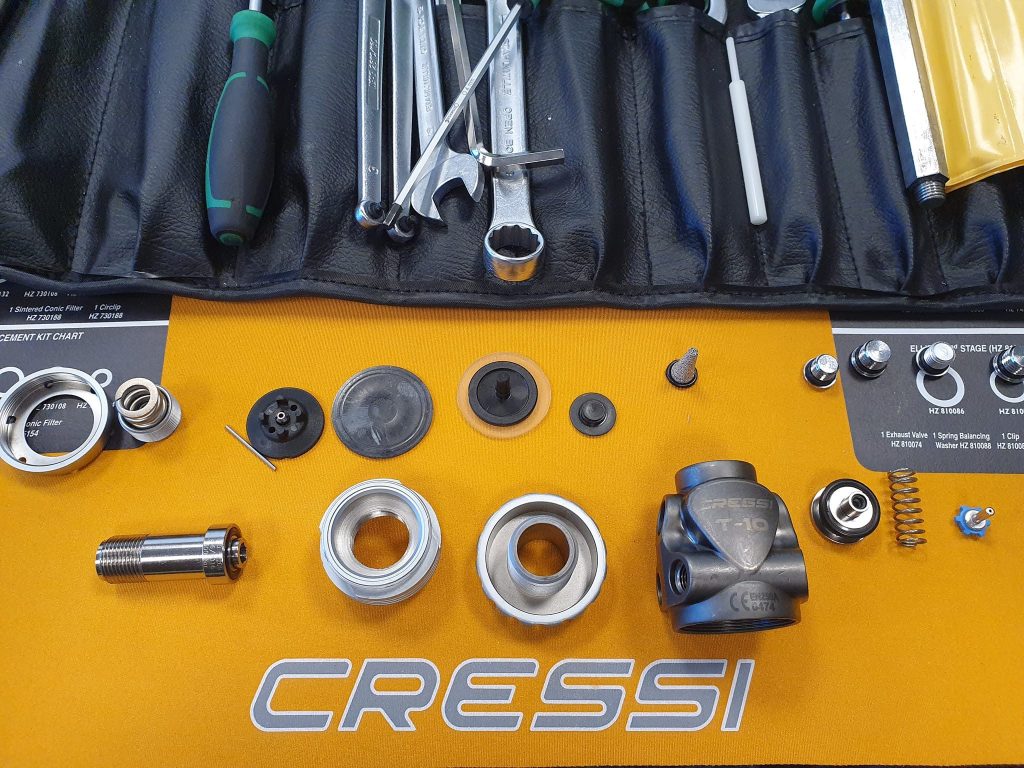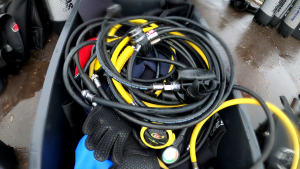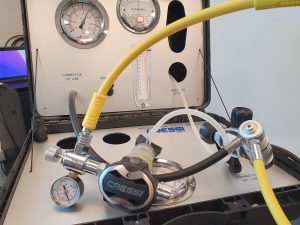Scuba diving is an exciting activity that allows people to explore the wonders of the underwater world. However, to ensure safe and pleasant diving experience, it is very important to properly maintain your diving equipment. In Latvia, more and more diving enthusiasts and professionals recognize the importance of well-maintained diving equipment, increasing the demand for reliable and skilled diving equipment service providers, learn more about diving equipment maintenance, on this page.
Table of Contents
Types of diving equipment services
Diving equipment service includes a wide range of tasks, from basic maintenance to complex repairs. Some of the common services offered include:
- Regulator maintenance: Regulators are a diver's breathing apparatus, and their proper operation is paramount to safety. Routine maintenance includes cleaning, lubrication and testing to ensure reliable airflow under pressure.
- Buoyancy Compensator (BC) service: Also known as buoyancy control devices, BCs help divers maintain neutral buoyancy underwater. Regular maintenance includes checking inflation hoses, valves and belts to ensure they are working properly.
- Dive computer service: Dive computers are essential tools for monitoring diving parameters such as depth, time and gas consumption. Maintenance usually includes battery replacement, pressure testing and calibration.
- Mask, flipper and snorkel maintenance service: regular cleaning and inspection of masks, fins and snorkels is essential to maintain their functionality and prevent damage.
Expert opinion on diving equipment service
Experienced diving instructor and PADI instructor Valters Preimanis shares his insights on the importance of diving equipment service
- Regular maintenance is essential for equipment safety and longevity: Just like regular car maintenance, timely maintenance of diving equipment helps prevent malfunctions and keeps it in optimal condition, reducing the risk of accidents and extending the life of the equipment.
- Seek professional service from qualified technicians: Experienced dive equipment technicians have the knowledge and experience to perform complex repairs and ensure your equipment meets safety standards.
- Follow the manufacturer's instructions: Consult the instructions for your dive equipment for specific maintenance instructions and schedules to ensure proper care and longevity.
What are the most frequently asked questions about diving equipment service in Latvia?
What are the most common reasons for diving equipment service?
-
The most common reasons for commissioning diving equipment are the following:
- Pre-season inspection and maintenance: before starting a new diving season it is very important to thoroughly inspect and maintain your equipment to ensure it is safe and ready for use.
- Damage or malfunction: If your equipment becomes damaged or shows signs of malfunction while diving, it is recommended that you have it repaired immediately to prevent further damage or potential hazards.
- Regular maintenance: even if your equipment appears to be in good working order, regular maintenance is essential to prevent wear and tear and ensure its long-term reliability.
2. How often should diving equipment be serviced?
The frequency of maintenance depends on the type of equipment and the type of use. Regulators and BCs generally require annual maintenance, while masks, fins and tubing may only require occasional inspection and cleaning.
3. What are the costs of servicing diving equipment in Latvia?
The cost of diving equipment service varies depending on the type of equipment, the amount of work required and the location of the service provider. A general estimate for a comprehensive regulator, BC and dive computer service would be around 50 EUR to 150 EUR.
The importance of diving equipment service
Timely maintenance of diving equipment is crucial to ensure safety, reliability and diving experience. The availability of experienced and skilled diving equipment service providers is increasing in Latvia, meeting the growing demand of divers of all levels. By prioritizing regular maintenance and choosing qualified service providers, divers can ensure that their equipment remains in top condition, increasing the excitement and safety of underwater exploration.
What are the most common diving equipment failures?
Diving equipment is designed to withstand the rigors of underwater exploration, but it is not immune to failure. Although proper maintenance and care can greatly reduce the risk of malfunction, some components are more prone to problems than others. Below is a breakdown of the most common diving equipment failures:
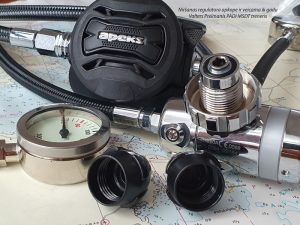
1. Regulators: Regulators are the heart of diving equipment, responsible for directing compressed air from the tank to the diver's mouth. These are complex mechanisms that can cause a variety of problems, including:
- Free flow: this occurs when air escapes from the second stage of the regulator, causing uncontrolled gas flow. This can be caused by worn O-rings, dirt, or internal malfunctions.
- Valve freezing: in cold water, the valves in the first stage of the regulator can freeze, restricting or blocking the air flow. This is more common in older regulators or those that have not been properly maintained.
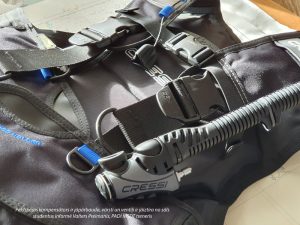
2. Buoyancy compensators (BC): BC is essential for maintaining neutral buoyancy, which is an essential factor for comfortable and safe diving. The most common BC failures are:
- Hose damage and leaks: inflation and deflation hoses may leak due to wear, age or damage. These leaks can cause uncontrolled changes in buoyancy and potential takeoff or landing problems.
- Valve Malfunction: Valves that control deflation and inflation may malfunction, causing difficulty in regulating buoyancy.
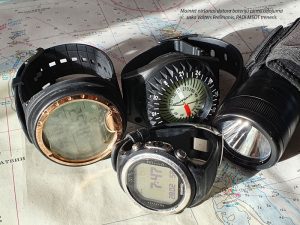
3. Dive computers: Dive computers are sophisticated instruments that monitor diving parameters such as depth, time and gas consumption. Common dive computer failures include:
- Battery problems: the batteries may discharge prematurely or fail, rendering the computer unusable.
- Sensor malfunctions: sensors that measure depth, pressure or other parameters may malfunction, causing inaccurate readings.
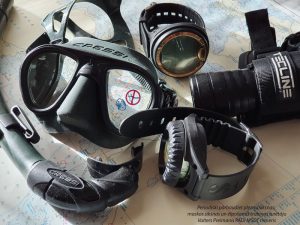
4. Masks, flippers and tubes: although these components are less complex than regulators and BCs, they can still cause problems.
- Mask leakage: mask seals can leak due to wear, tear, or improper fit, allowing water to enter the mask and compromise visibility.
- Metatarsal fracture: the flippers can break if they collide with rocks, corals or other underwater obstacles.
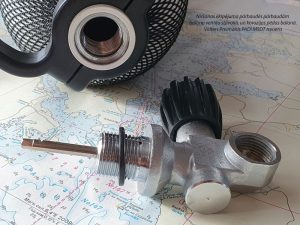
5. Diving balloons: the steel (aluminum) cylinder is the main source of breathing reservoir for divers. Although generally reliable, they can leak or crack due to corrosion, damage, or improper handling. They must be serviced annually.
Regular maintenance and inspection by qualified diving equipment technicians is essential to prevent equipment failure and ensure the safety of diving activities.
How to apply for diving regulator maintenance, diving regulator service?
- Find out the name and model of the manufacturer of your diving regulator or diving BCD vest
- We accept Cressi, Apeks and Aqualung regulators and other models for service. Find out how quickly original service repair parts are available. Call a specialist at the phone number below.
- Diving regulator maintenance - "Dronelab" SIA, tel. 220-77-202, e-mail: service (at) dronelab.lv

